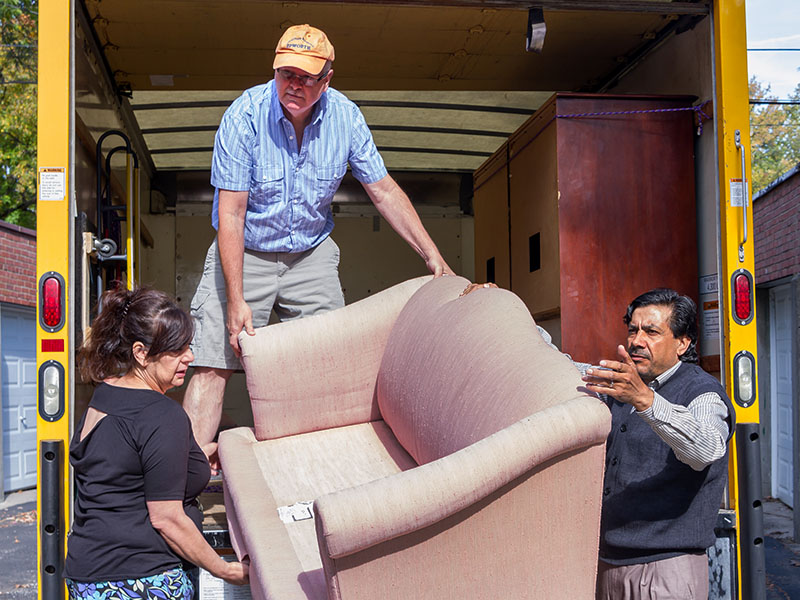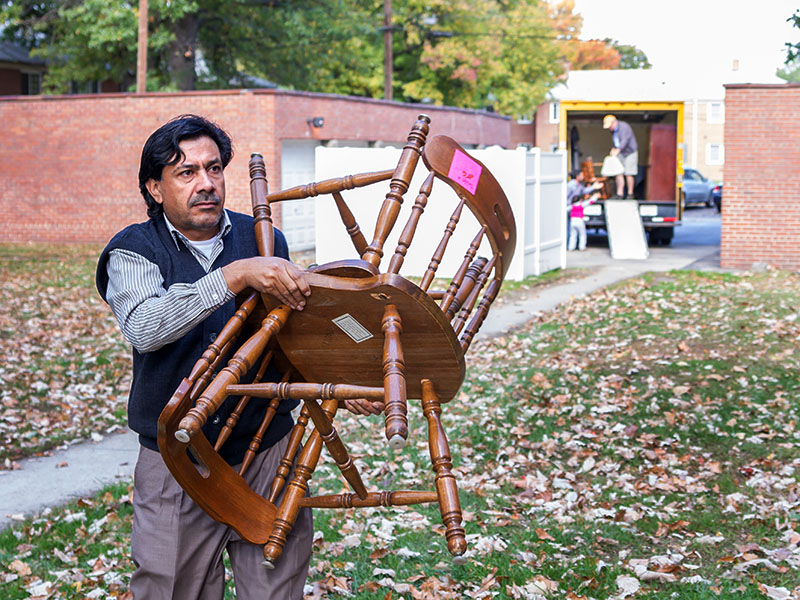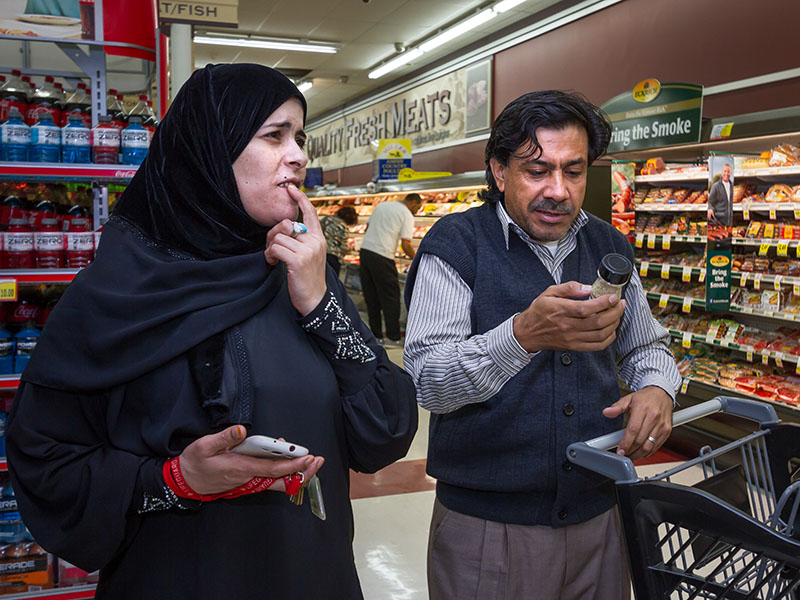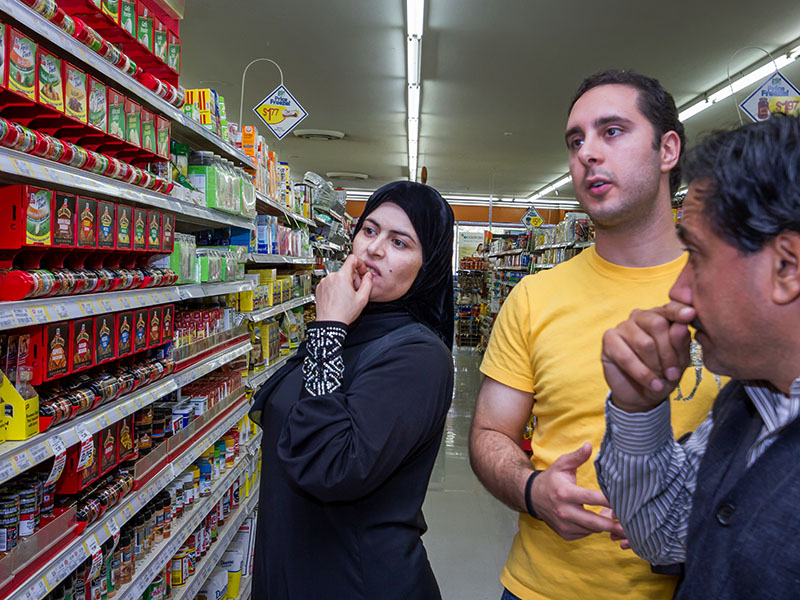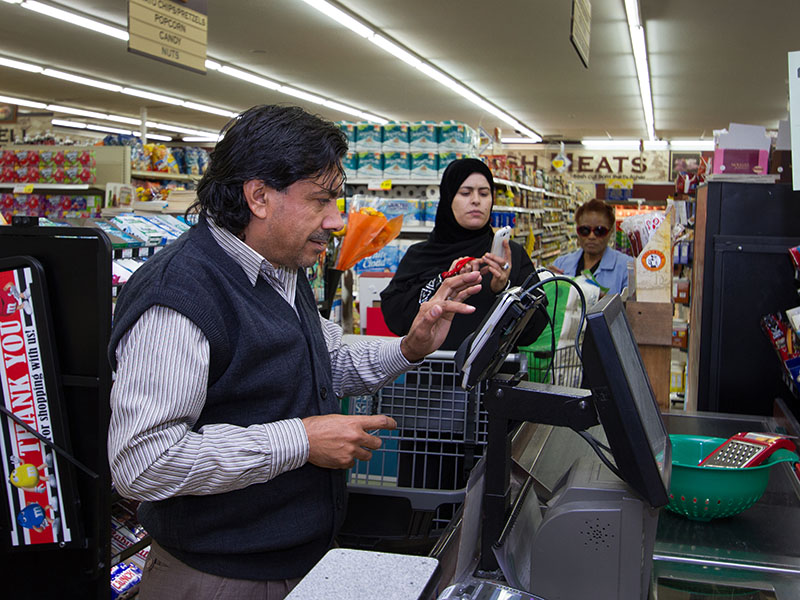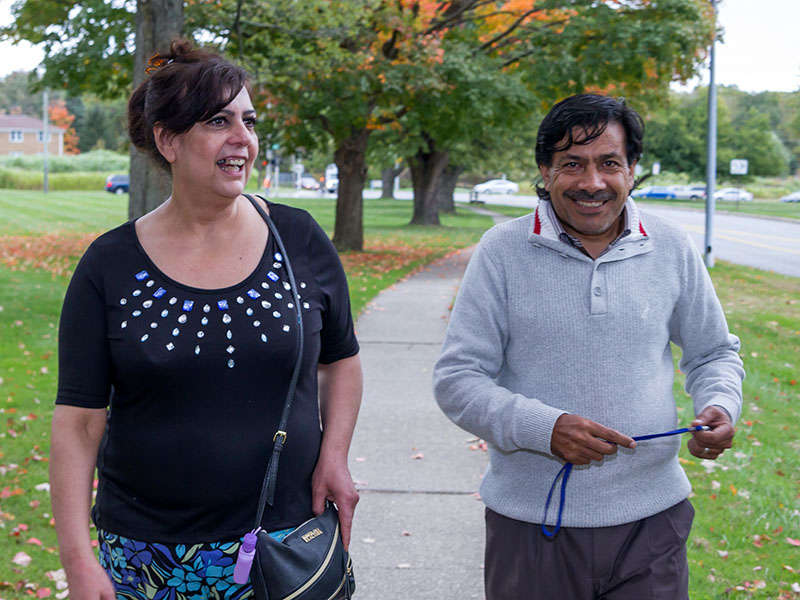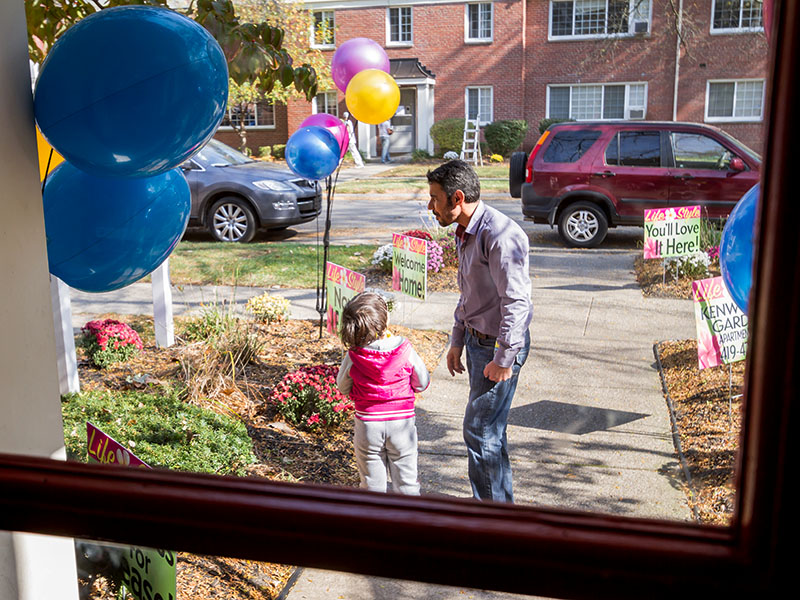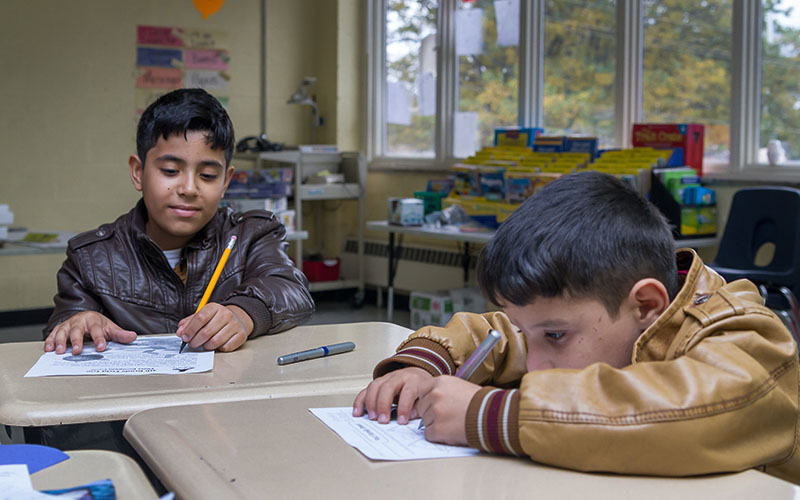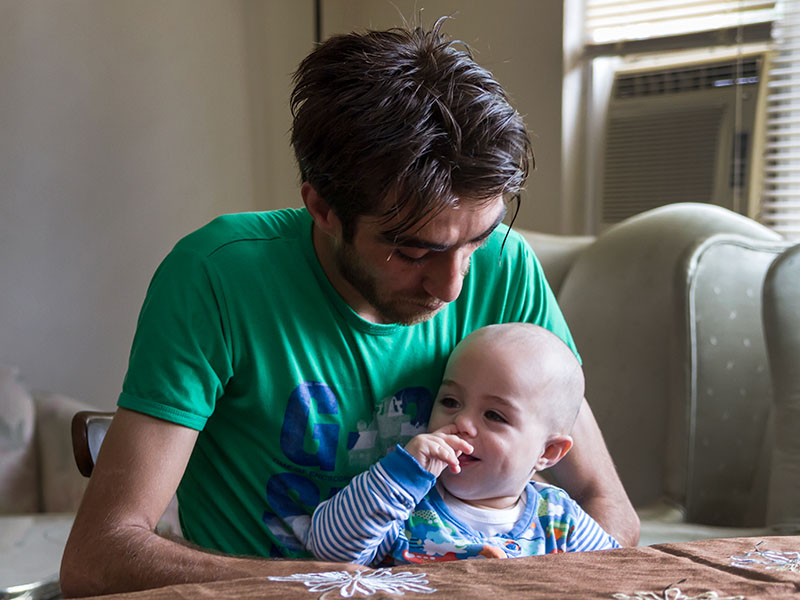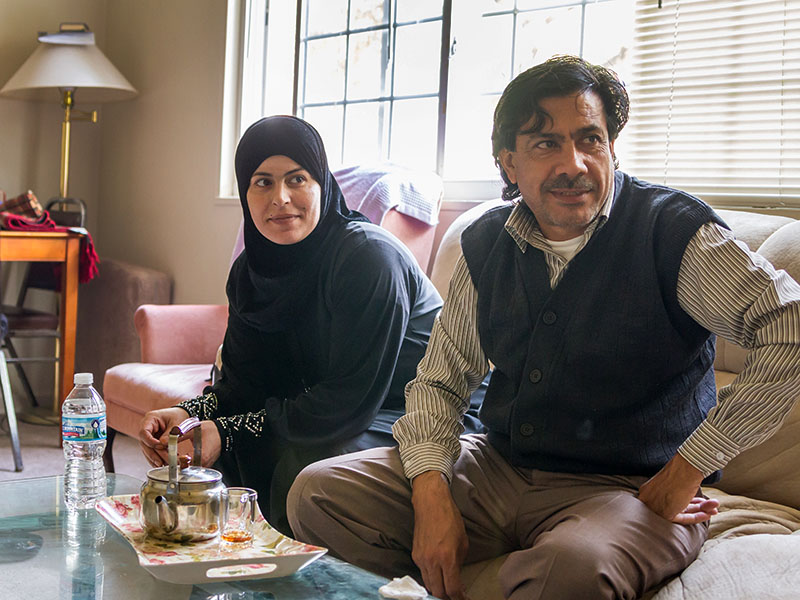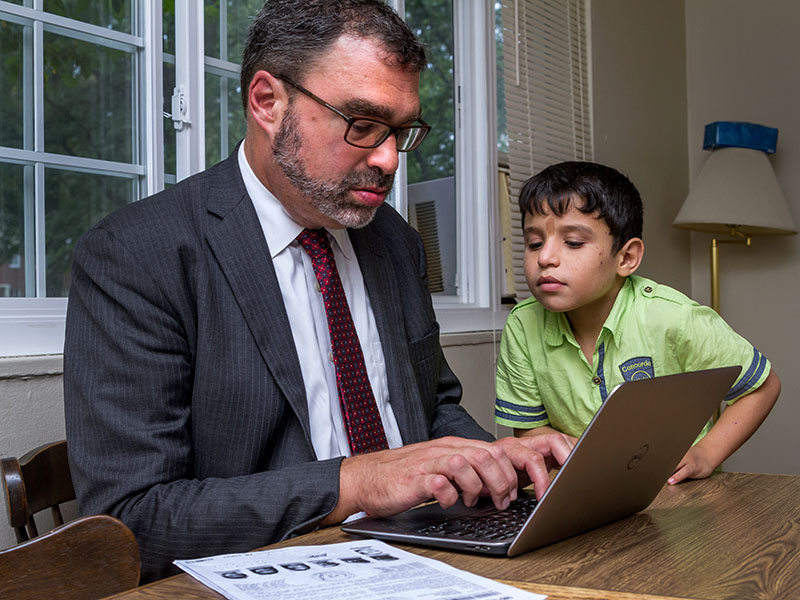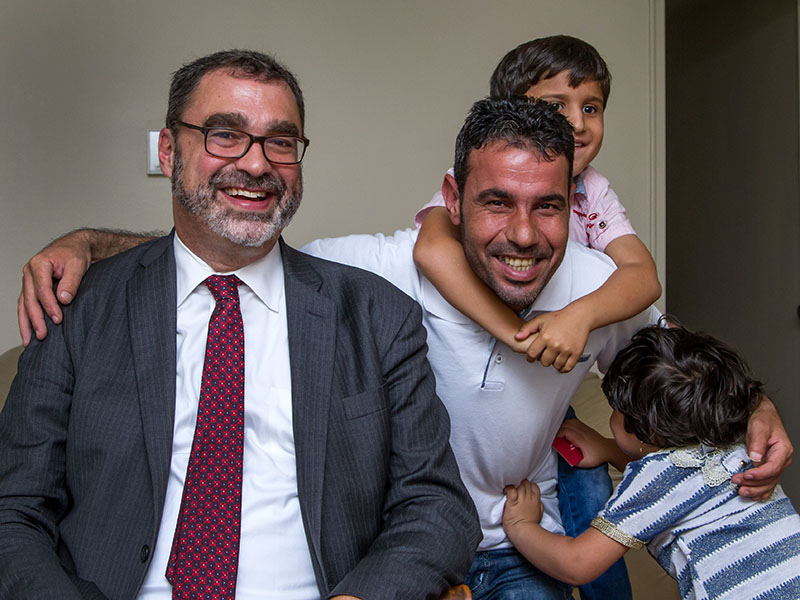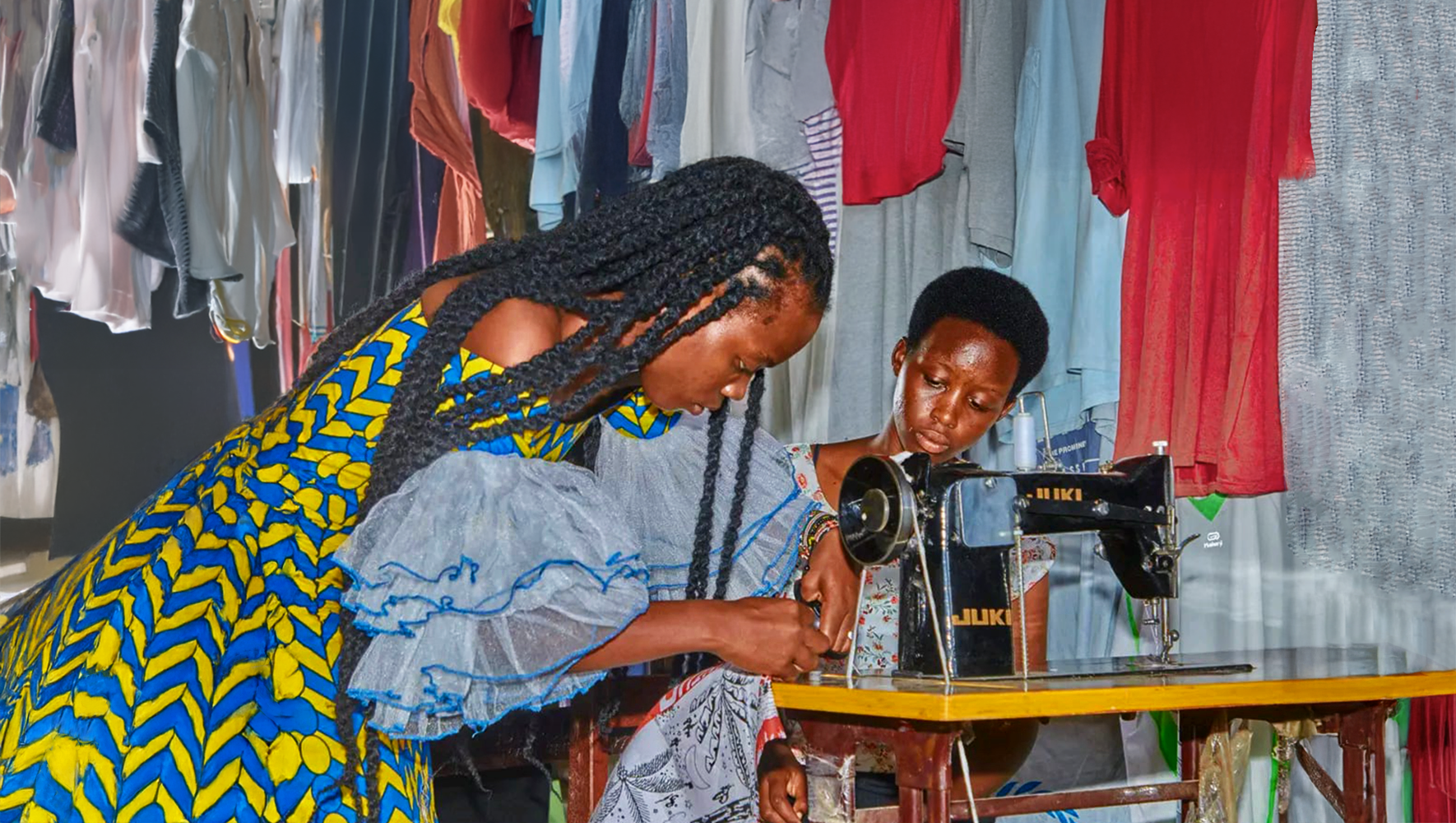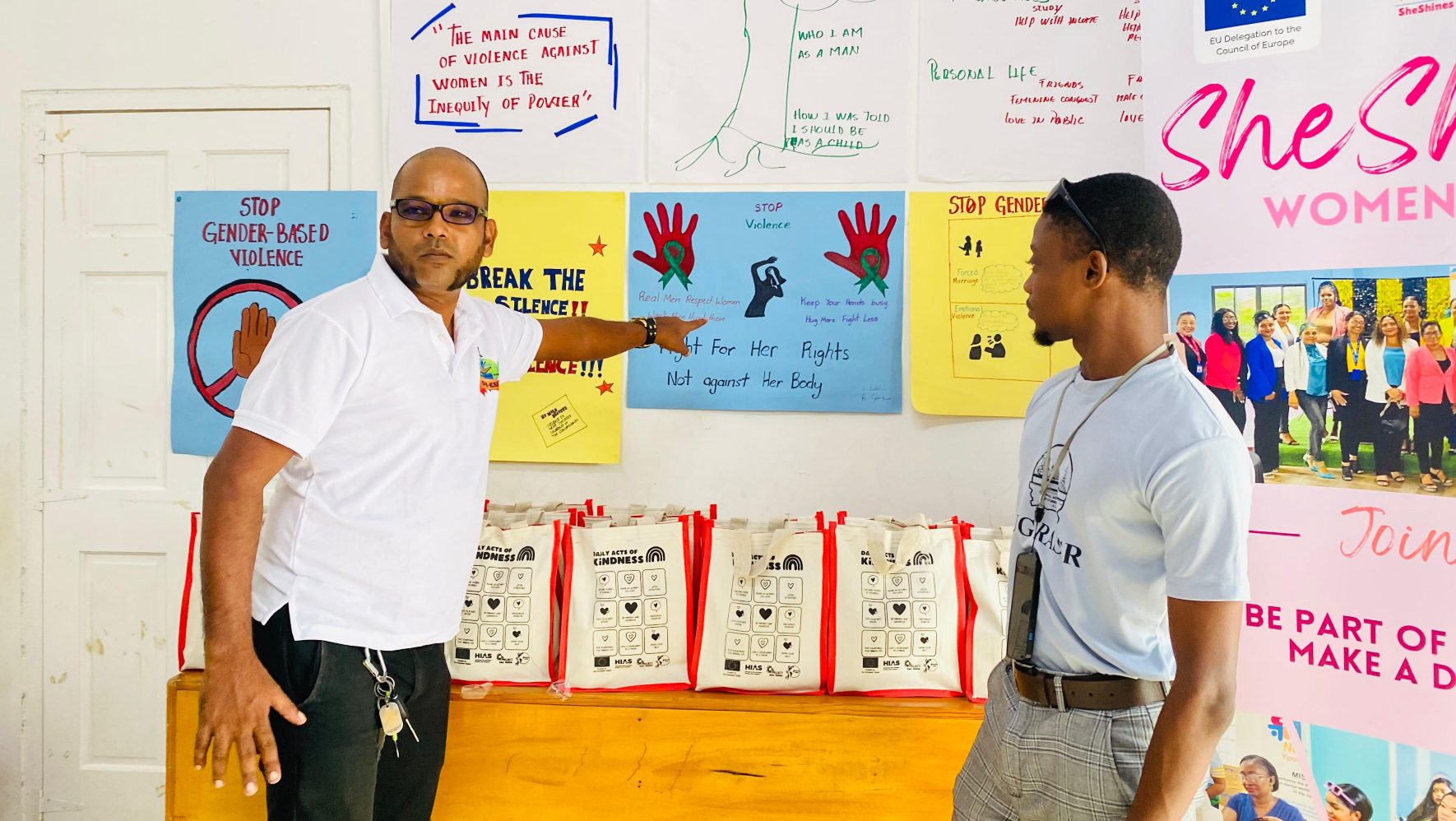A Barber, a Tailor and a Carpenter
Dec 29, 2015
A barber. A tailor. A carpenter. Elementary and pre-school kids. Just a few of the newest residents of Toledo, Ohio who I met on a recent visit. All are Syrian refugees, resettled in recent months by HIAS and US Together, our partner in Toledo. All fled unimaginable destruction and chaos. Several were displaced multiple times before arriving in the United States. Most left from Homs in 2012, a city the Russians are now bombing. When I asked why they fled, one refugee looked at me like I was crazy, saying, “Rockets, explosions and death.”
Though each family’s situation was unique, common themes quickly emerged. They told me they just wanted to be able to live their lives and protect their kids. They all missed Syria, but not the Syria from which they fled. The Syria that, as more than one person put it, “was the safest country in the world, until it was the most dangerous.”
Before they were resettled, most of these families were living in Jordan, which was not easy and only got more difficult the longer they were there, as food assistance from the World Food Program declined from 15 dinars per month per person, to 7 dinars per month to zero. They could only work “under the table,” their employers paying them substandard wages, or sometimes nothing at all, and threatening to have them arrested if they complained. The carpenter showed me his crippled arm; he had damaged nerves when his hand went into a buzz saw while working in Jordan. He said he was not paying attention to what he was doing, because he was constantly looking over his shoulder for fear that the authorities would show up and ask for his papers.
Everyone I spoke with had similar stories about how they got to the United States. Each had received a call from the UN refugee agency asking if they were interested in resettlement and after multiple interviews and security checks, found themselves in Toledo, Ohio 10-18 months later.
One father shared how happy, relieved and surprised he and his family were when they landed in Toledo and were met by a friendly person who took them to a furnished apartment with a stocked kitchen. Another expressed his gratitude that Americans have been kind and patient with his family even when they make mistakes or don’t understand something.
Visiting Toledo reminded me of the stories of American Jewish families in America during World War II who had relatives in Europe — living under the yoke of Nazi Germany or the USSR — and how they worried that they would never see their loved ones again.
Every single refugee I met told me how heartsick he or she was for those left behind; parents and brothers and sisters. The families in Toledo were the lucky ones. Other relatives also received calls from UNHCR, but then somehow the process got stuck. No one can figure out why one refugee gets approved and another does not, why some get calls from UNHCR and others are left waiting. And when their relatives contact UNHCR to find out where they are in the process, or why they are not in process, the response from the overwhelmed and underfunded humanitarian agency is always, “don’t call us, we’ll call you.”
I went to Toledo to see for myself what resettlement of refugees from the Syrian civil war looks like and to get a sense of how the new arrivals are doing in their new homes. I came away with one strong impression: these people are not a danger to be feared, they are barbers, tailors, carpenters, parents like you or me who just want their children to grow up in safety. They have survived war and displacement. They are grateful for the chance America has given them to start over, and they deserve our solidarity and support as they go about the business of slowly rebuilding their lives.
